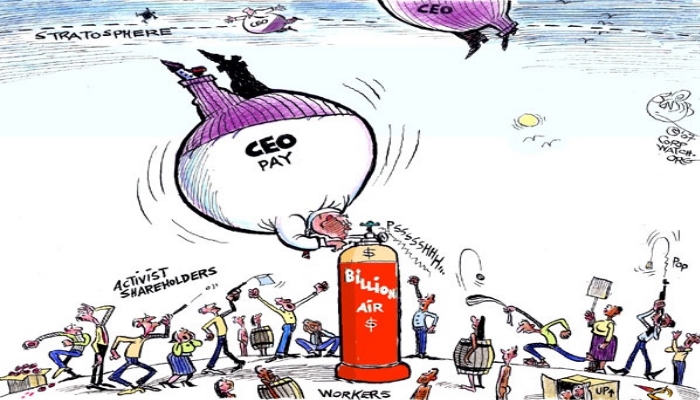
Top executives now paid 50 times average earnings
Australia’s top executives are now earning, on average, more than 50 times the average working person’s salary, according to a survey by the Australian Financial Review.
And the gap is growing.
Over the last financial year, the amount going to the 300 highest execs rose by 5%, despite the ASX 200 only rising by 1.2% over the same period. At the same time, wage growth across the nation as a whole was 2.3%.
Supporters of these huge differences in rewards argue that executive pay is now determined by the global market, not by local wage structures. But that is just another way of saying that growing earnings inequality is now a world-wide problem, not only an Australian one.
In the US in 2013, for instance, the average executive earned 313 times as much as the average worker, according to the US peak union organisation, the AFL-CIO.
And in the UK chief executives of blue-chip companies enjoyed a median pay rise of 32% last year, compared with a 7% rise in the stock exchange and a 2% increase in workers' pay.
These figures point to a global trend that is seeing not only wages but productive investment (and hence job growth) stagnate while corporations and their executives find new ways to enrich themselves – through share buybacks, share options and generous retirement benefits.










